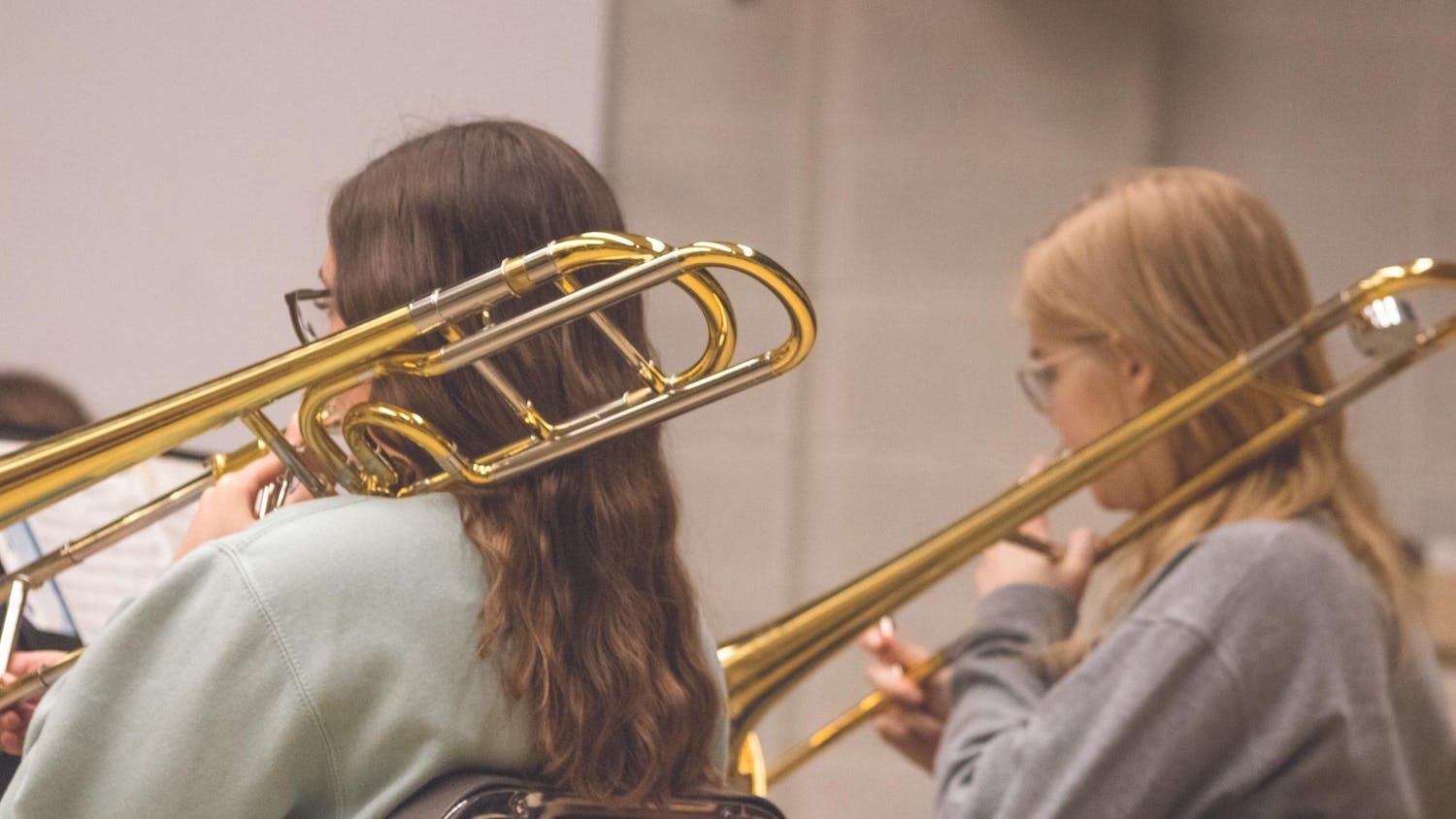By Blair Tilson | Echo
I was on my way to Love's with friends when the person in the front seat turned up the radio. Everyone screamed when they recognized the song. It had one of those beats that makes you want to dance, and so we all threw our hands into the air, moved our hips and belted out the lyrics at the top of our lungs. But as I took a second to collect my breath, it dawned on me-
What am I saying?
"I hate these blurred lines, I know you want it, but you're a good girl, can't let it get past me . . . must wanna get nasty, go ahead, get at me. . . ." (Blurred Lines)
Do I agree with these lyrics? No. But I've sung them and danced to them-and in doing so have promoted everything they stand for.
As Taylor students, we have an answer to why we listen to these songs, don't we? 'I just like the beat and rhythm, and/or I don't really pay attention to the lyrics anyway . . .'Hmm. That's sad, because we should. Because in listening to these types of songs, what are we saying about women? What are we saying about ourselves? And most importantly, what are we saying about our faith? Seems to me we have some blurred lines when it comes to our music.
So I asked the front seat passenger to switch the music station. The song playing is one I and everyone else in the car have memorized, and it brings us back to our days of middle school dances, so we resume scream-mode until verse three comes around, making me stop dead in my tracks.
"Forget the game, I'mma spit the truth, I won't stop until I get 'em in they birthday suits. So gimmie the rhythm and it'll be off with their clothes, then bend over to the front and touch your toes." (Yeah!)
This image disgusts me. But what disgusts me even more is that this image hadn't bothered me before. What these singers are saying about women, about me, is demeaning and exploitive and yet I celebrate it!
Even as I went on a run today, I turned on my favorite workout playlist on Pandora. Of the dozen or so songs played, every song but one included derogatory lyrics about women. We're described as accessories and trophies for men to show off, as sex objects there to fulfill a man's desire-even if we don't want it.
As a women, I have accepted this from our culture, coming to the conclusion that "I don't agree with it, but I'll still sing to it." You know what's the real issue here?
We have been brainwashed.
The exploitation of women in music has become so mainstream we don't even mind it. We even enjoy it! And when Robin Thicke released his "Blurred Lines" music video featuring topless women this past summer, my friends and I didn't let that stop us from jamming the next time it blared on the radio.
Maybe you hate that song. OK, fine. But you probably have sung or danced to another song that is also demeaning to women. If not, good for you!
But I'm writing about this because I have, and I know I am not alone.
To those of us who dislike the lyrics but enjoy the song, we must think about how listening to such music speaks to those around us. Children already see women dancing in music videos that portray them in a derogatory manner. So when they see us dancing or singing to that same music with our friends, it must be OK, right?
And when girls grow up seeing themselves portrayed this way in media, they become convinced that in order to be successful as women, they too must conform to that oversexualized role. For instance, think of female artists Lady Gaga, Rihanna and now Miley Cyrus.
I invite you to examine with me the music we listen to and what listening to it reflects about us as followers of Christ. If God were to speak to this subject, I think he would respond similarly to the way Paul did in Romans 1:32.
"Although they know God's righteous decree that those who do such things deserve death, they not only continue to do these very things but also approve of those who practice them."
We might not all treat women the way Robin Thicke and Ludacris do in their song lyrics, but in celebrating their songs and others like them, we are guilty of approving their practices. Will we continue in our regard for culture's demeaning music, or will we clear up our blurred lines for music that better reflects God's truth?Thumbnail image courtesy of DeviantArt user TickTix.





